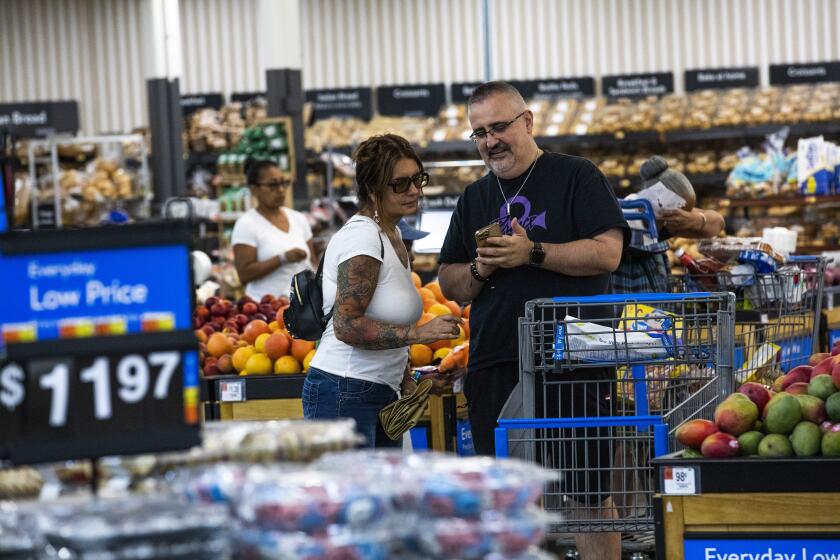Amazon’s Kindle opens new chapter for publishing industry
When Amazon.com Inc. launched its Kindle digital book business in 2007, little did many people realize that the company was really rewriting the book on the entire publishing industry.
Three years later, the online retail juggernaut has sold more than 7 million Kindle devices, according to estimates by Cowen and Co. That means roughly 1 in 10 people who shop on Amazon’s Web store have purchased a Kindle. This year, sales of Kindle devices and books are projected to hit nearly $2 billion, up 342% from 2009, according to Cowen.
When it comes to digital books, Amazon lives up to its name, controlling 76% of the U.S. market.
But you don’t get to own three-quarters of the market without making some waves. Amazon’s decision to adopt a technical format that prevents readers from easily transferring digital books purchased elsewhere onto the Kindle has irked rivals.
Until this year, Amazon insisted that all new releases sold at its store be priced at $9.99 or less. This infuriated a number of established publishers, who feared that digital sales would undercut the lucrative hardcover market.
And its promise in October to give authors who self-publish through its Kindle store a 70% royalty rate, far greater than the 25% in a standard publishing contract, spread fear and loathing throughout New York’s publishing houses.
From Russ Grandinetti’s point of view in Seattle, where Amazon is based, it’s time to stop dwelling on the past and jump into the next chapter, the one that will bring the book industry into the brave new digital world. As vice president of Kindle content, Grandinetti is in charge of getting as many books into the Kindle store as possible (it has 750,000 books for sale).
Grandinetti sat down for an interview recently to explain the thinking behind some of the decisions that have turned the hidebound world of publishing upside down.
What’s Amazon’s purpose with Kindle?
Our vision is [to make] every book ever written, in any language, in print or out of print, all available within 60 seconds. And we want to make the customer experience great.
Some folks are irked that they can’t easily transfer digital books they bought elsewhere into their Kindles. Why did you choose a proprietary technology?
We chose a format that we felt would give us better performance and superior ease of use. It’s the reason why the Kindle has faster page turns than some of the other devices. Because we control our own standard, we can develop applications that let customers read Kindle books on the iPhone, Android tablet, iPad, BlackBerrys and PC.
Have your relationships with publishers become more strained in the last year?
We disagree over a number of points, but there’s far more that we agree about. Amazon is a customer for publishers that’s helping to grow the book business. We believe the business is growing because we’ve built a store that’s incredibly easy to use.
How’s that coming along?
Our business is growing rapidly. We sold three times as many Kindle books in the first half of 2010 as in the first half of last year. We’re selling more Kindle books than hardcover books on Amazon. The day is not too far off when we’ll see sales of digital books surpass print books.
Publishers kicked up quite a fuss about digital book prices being too low. Can you actually grow the overall business by shrinking prices?
We think digital books should cost somewhat less than their print counterparts. When we controlled the pricing, we built the business around $9.99. A small group of publishers have taken control of their pricing, and they’ve raised the prices. It’s not surprising that publishers who are raising prices are losing market share relative to publishers who decided to keep prices low. Customers aren’t stupid. Ultimately, the market will drive prices.
Aren’t you losing money by paying publishers 50% of the cover price for a $25 hardcover and selling it for $9.99?
Taking a loss on bestselling books is different than taking a loss on your overall book business. We may lose money on bestsellers, but across the breadth of our catalog, we run a profitable, sustainable book business.
Do publishers now see you as a rival rather than a customer because of your self-publishing business?
We think the efficiencies of selling digital books should not only accrue to publishers but should also accrue to authors. That means that the middlemen standing between authors and readers need to get more efficient, and they need to pass those savings along. The 70% [royalty] rate we offer is a way to pass those efficiencies along.
Publishers provide a valuable service to authors, but the model needs to evolve. Some authors prefer to do for themselves all those services publishers provide. There will be a wide spectrum of publishing models, from full-service to self-service.
ABOUT THIS ARTICLE
This is the seventh in a series of occasional articles exploring how technology is changing libraries, the publishing industry and the experience of reading.
Previous articles, video reviews of e-book readers and e-book applications and a slide show on the evolution of books are available at https://www.latimes.com /reading.
More to Read
Inside the business of entertainment
The Wide Shot brings you news, analysis and insights on everything from streaming wars to production — and what it all means for the future.
You may occasionally receive promotional content from the Los Angeles Times.










